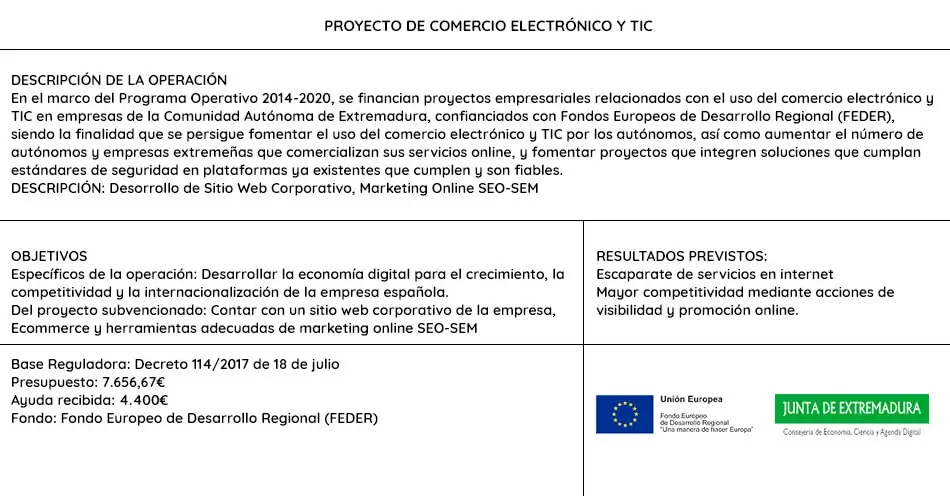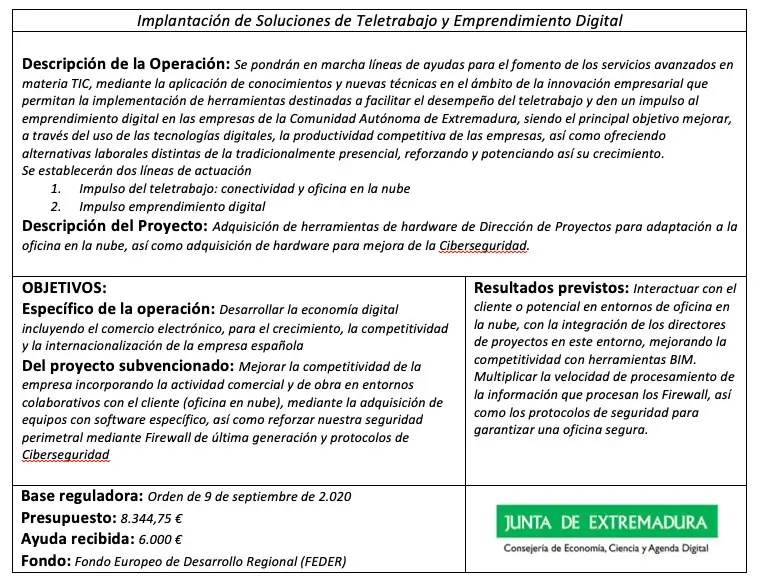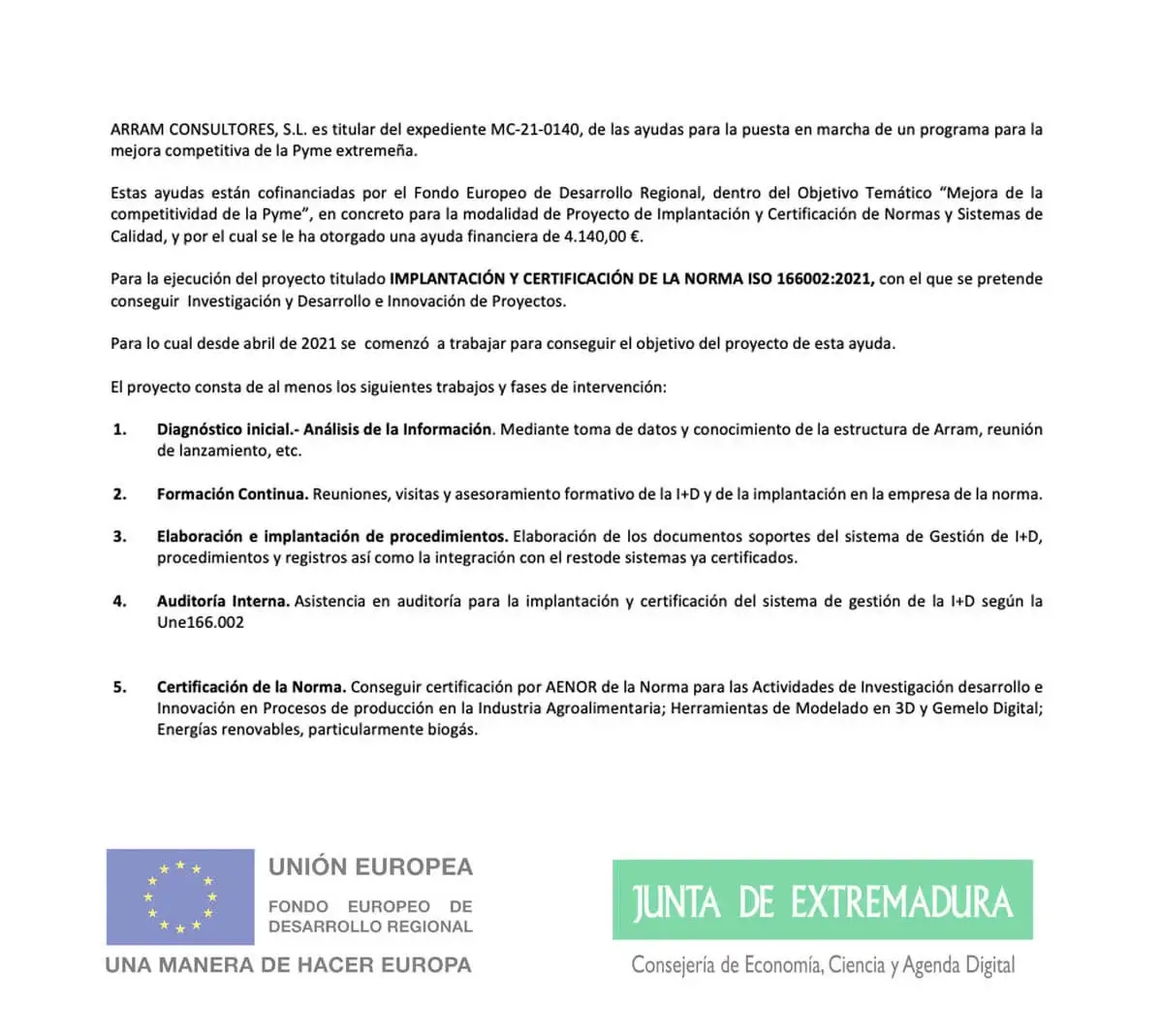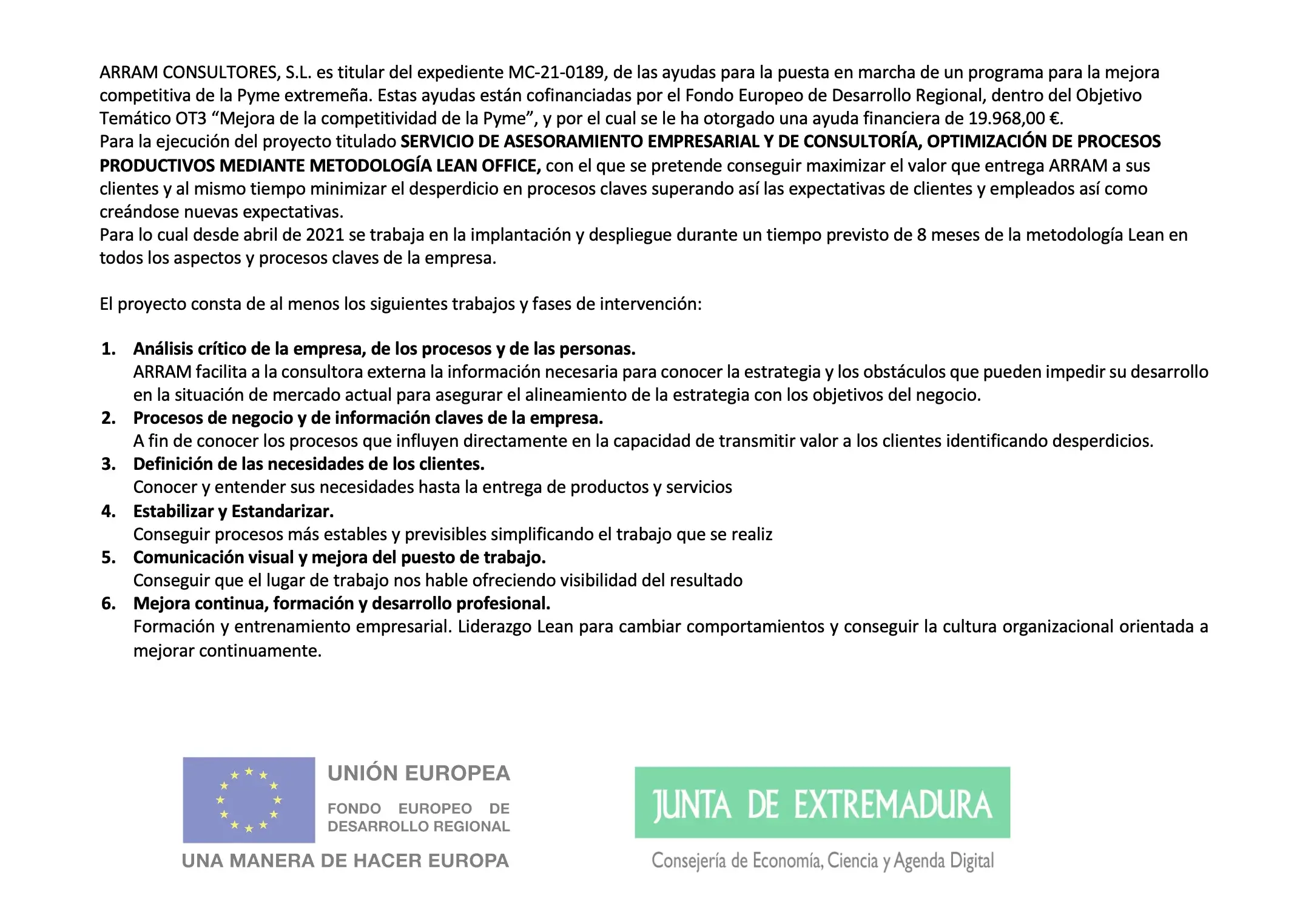
SUSTAINEXT PROJECT: SHOWCASING A NEXT-GENERATION, ZERO-WASTE, DYNAMIC MODEL OF BIOREFINERY FROM EXTREMADURA TO THE BIO-BASED INDUSTRY IN THE EU
The first European-funded CBE flagship for botanical extract manufacturing
Its main goal is to industrially deploy an intelligent, dynamic and analytical biorefinery that integrates the entire biomass supply chain and enables cascading feedstock valorization
We feel very fortunate to be part of this project, which represents a professional challenge. Our role, as WP2 leaders, will be: BIOREFINERY DESIGN & CONSTRUCTION; Towards circularity & digitalization, together with Natac and IRIS Technology Solutions.
SUSTAINEXT is the first FLAGSHIP project funded by the Circular Bio-based Europe Joint Undertaking (CBE JU) that aims to revolutionize the botanical extracts industry with a unique model that can then be replicated by the European bio-based industry. This pioneering 54-month project has taken its first steps following its kick-off meeting on 13 June in Hervás (Extremadura, Spain), where 21 partners from all over Europe started working together to achieve the ambitious objectives set.
The main goal of this resource-efficient project is to industrially deploy 20,000 metric tons of a versatile, multi-product NetZero Carbon digital biorefinery to move towards a more competitive bioindustry of botanical extracts. This circular and disruptive model is based on the DYANA concept, i.e. an intelligent, dynamic and analytical biorefinery that integrates the entire supply chain from feedstock to end-users and enables cascading feedstock valorization that is batch-optimized based on the initial feedstock composition to deliver maximum value with the twin goals of zero waste and zero emissions.
SUSTAINEXT will be deployed industrially with six European feedstocks of sustainable and local origin. Three medicinal and aromatic crops (rosemary, chamomile and lemon verbena) will be grown in Extremadura in disused tobacco fields as an alternative towards healthier crops, and also between solar panels, enhancing land use.
In addition, three agro-industrial side-streams (olive, artichoke/thistle and pomegranate) will show how biomass recycling represents an opportunity to give new life to certain under-exploited biological raw materials.
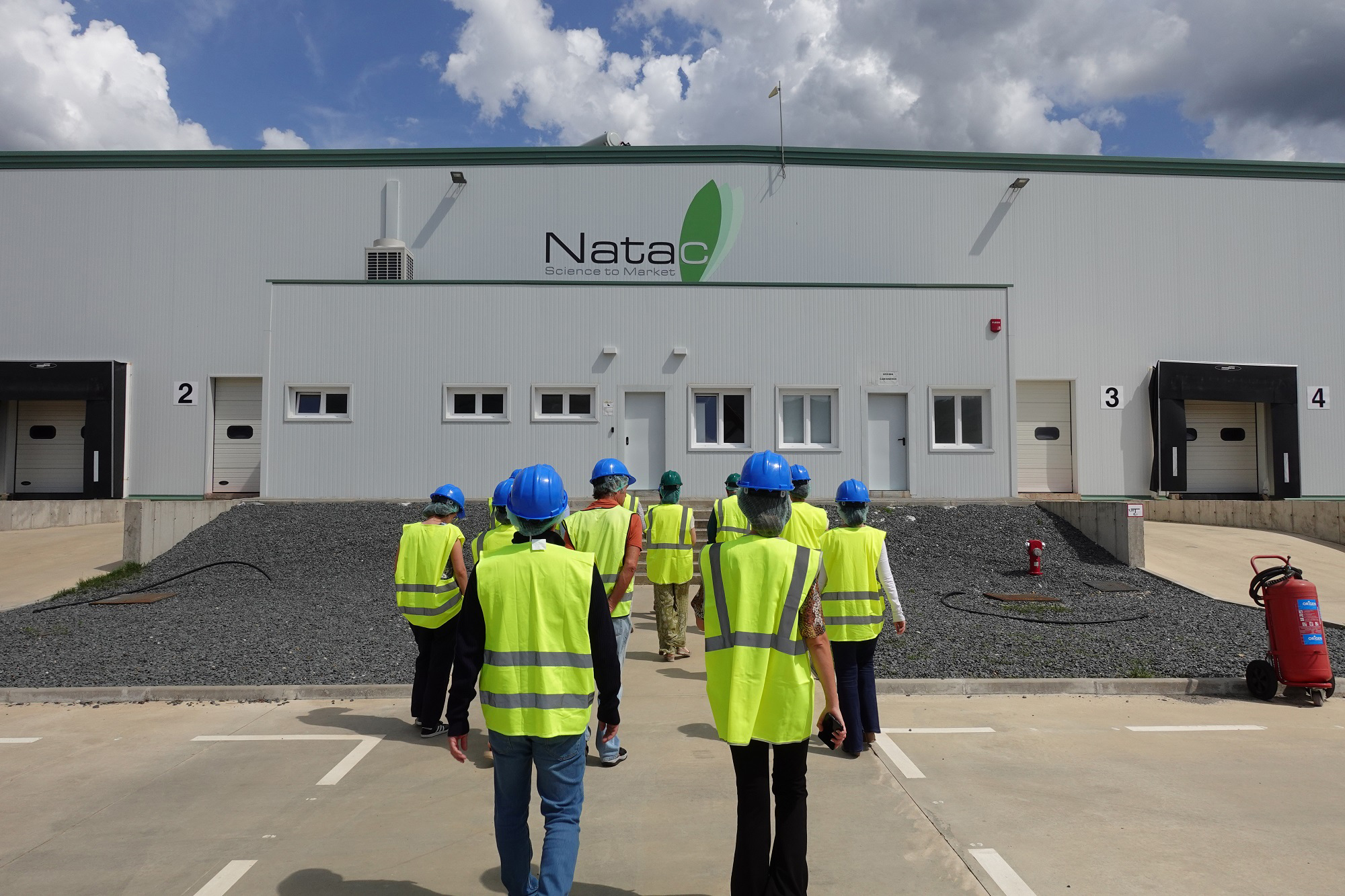
The botanical extract sector is a booming market with great potential for technological updates by using new biorefining concepts, that will allow it to move towards a cascade, multiproduct, dynamic, environmentally friendly and integrated model with no pollution and zero carbon ambition. Until now, feedstocks have been processed in a fixed way, regardless of their composition, to produce a single product and discard the exhausted biomass. Hence, there is a clear business opportunity with a very high market potential to deploy a large-scale disruptive industrial model to enable the production of plant-based ingredients, while meeting the three key market drivers: cost competitiveness, guaranteed quality/traceability and sustainability of production.
This new model that will be developed within the SUSTAINEXT project is adaptable to every type and quality of biomass feedstock and capable of switching to renewable energy sources. All this will result in an innovative biorefinery with improved environmental performance, maximum energy and resource efficiency.
The CBE JU Executive Director ad interim Nicoló Giacomuzzi-Moore said on the occasion: “The SUSTAINEXT project is showing Europe how the circular bio-based industries can create jobs, attract talent and spur business opportunities in rural regions like Extremadura. The project will put in place a sustainable and efficient bioeconomy business model based on zero-waste and zero-pollution processes integrated with renewable energy. Hervás will set a new standard in sustainable progress with an innovative and first-of-its-kind biorefinery; I hope their example will ignite a paradigm shift that empowers regions and sectors to embrace the circular bio-based industries”".
SUSTAINEXT project will contribute to:
- Induce socioeconomic benefits in Extremadura. This humble Spanish agro-livestock farming region, located in the southwest of the Iberian Peninsula, is currently facing several challenges that SUSTAINEXT will address. This is a key opportunity to unlock new value chains in the region, through the use of selected medicinal and aromatic plants (rosemary, chamomile and lemon verbena), as well as olive, artichoke and pomegranate biomass, which will generate new business opportunities and jobs, both direct and indirect.
- Establish new alternatives to the tobacco plant industry. 98% of tobacco cultivation in Spain takes place in Extremadura, with 8,664 hectares in total. Currently, this industry is looking for new alternatives that will make it more economically viable and achieve greater social acceptance through healthier crops. This is where medicinal and aromatic plants come into play, emerging as a viable and profitable opportunity
- Shift from photovoltaic to agri-voltaic solar energy. Extremadura is the Spanish region with the highest installed solar PV capacity, which has intensified competition for land use and associated increased carbon emissions from land use change. Agri-power has emerged as a sustainable model, capable of combining clean and affordable electricity production and agricultural production.
- Valorize agro-industrial biomass. This is one of the greatest challenges for the region of Extremadura, the fifth largest in Spain in terms of agro-industrial biomass production, with 6,800 tonnes per year. These resources are currently under-exploited raw materials with great potential for the development of new healthy ingredients.
The consortium is made up of 21 partners spread across Europe: Natac, Innovaoleo, Agrosingularity, TABACOEX, CTAEX, BIOPLAT, Enel Green Power España, ARRAM Consultores, Industrias y Promociones Alimenticias, Biomasa Peninsular, Consejo Regulador Denominación de Origen Protegida Torta del Casar, Nutraresearch, FUNDECYT-PCTEX and IRIS Technology Solutions, all from Spain; Enel Green Power, Star Industriale, ACEL Pharma and Università degli Studi di Torino, from Italy; ECODESIGN Company GmbH, from Austria; MIAVIT GmbH, from Germany and Mibelle Biochemistry, from Switzerland.

The diversity, excellence, and strength of the experts of the SUSTAINEXT consortium, led by Natac, the leading Spanish company in the production of sustainable plant extracts responsible for managing the Hervás plant, the epicentre of the project, guarantee the technological, technical and social progress of the project.
Natac's CEO, Antonio Delgado, also welcomes the new project and remarks: “The SUSTAINEXT project solidifies Natac's long-standing strategy, which was initiated in 2010, to embrace the circular bioeconomy as a sustainable business model. Our mission has remained steadfast: To transfer scientific knowledge into industrially viable and sustainable projects that generate value and enhance people's lives. Today, we celebrate the fact that this commitment is acknowledged and supported by a multitude of stakeholders, encompassing public and private entities, both for-profit and non-profit, from numerous industries and sectors. Furthermore, our commitment resonates with end consumers, who ultimately drive our success. Guided by this momentum, we aim to continue this strategy and spearhead this movement with a holistic, multi-impact business-led approach such as SUSTAINEXT”

